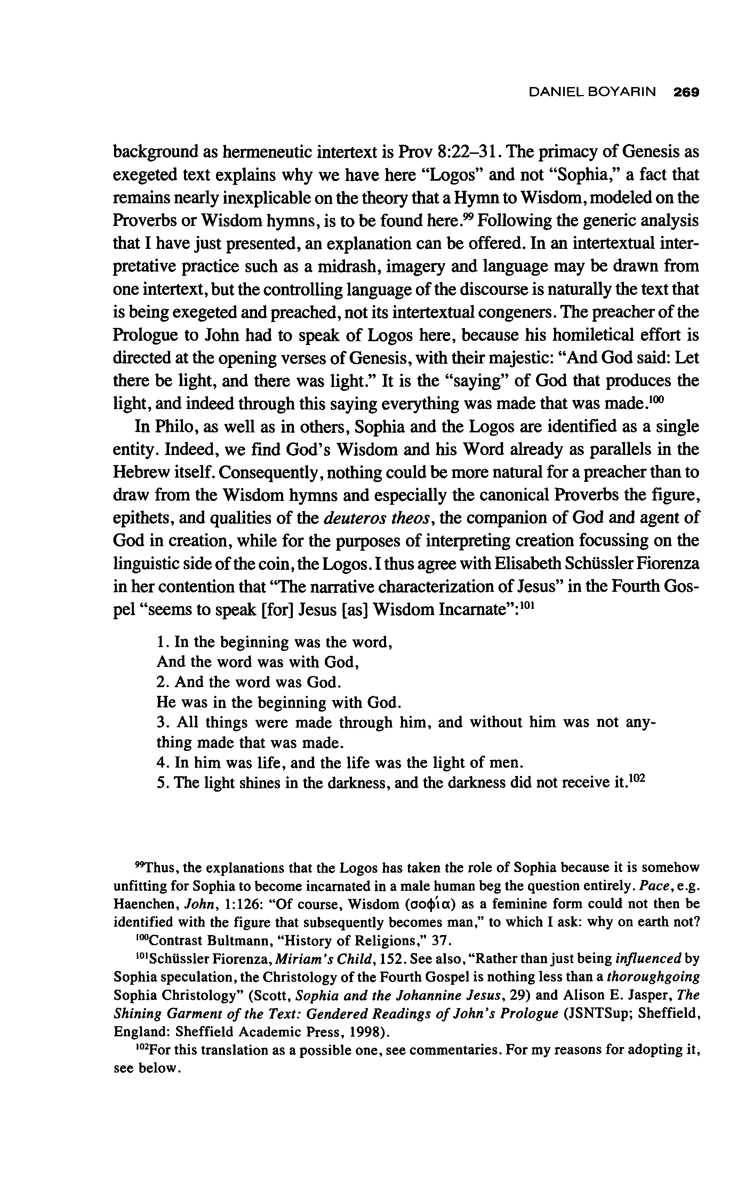a forthcoming book.
97Haenchen, John, 1:136.
98For Bultmann's view, see Bultmann, John, 21-22 and passim.

DANIEL BOYARÍN 2 6 9
background as hermeneutic intertext is Prov 8:22-31. The primacy of Genesis as
exegeted text explains why we have here "Logos" and not "Sophia," a fact that
remains nearly inexplicable on the theory that a Hymn to Wisdom, modeled on the
Proverbs or Wisdom hymns, is to be found here." Following the generic analysis
that I have just presented, an explanation can be offered. In an intertextual inter-
pretative practice such as a midrash, imagery and language may be drawn from
one intertext, but the controlling language of the discourse is naturally the text that
is being exegeted and preached, not its intertextual congeners. The preacher of the
Prologue to John had to speak of Logos here, because his homiletical effort is
directed at the opening verses of Genesis, with their majestic: "And God said: Let
there be light, and there was light." It is the "saying" of God that produces the
light, and indeed through this saying everything was made that was made.100
In Philo, as well as in others, Sophia and the Logos are identified as a single
entity. Indeed, we find God's Wisdom and his Word already as parallels in the
Hebrew itself. Consequently, nothing could be more natural for a preacher than to
draw from the Wisdom hymns and especially the canonical Proverbs the figure,
epithets, and qualities of the deuteros theos, the companion of God and agent of
God in creation, while for the purposes of interpreting creation focussing on the
linguistic side of the coin, the Logos. I thus agree with Elisabeth Schüssler Fiorenza
in her contention that "The narrative characterization of Jesus" in the Fourth Gos-
pel "seems to speak [for] Jesus [as] Wisdom Incarnate":101
1. In the beginning was the word,
And the word was with God,
2. And the word was God.
He was in the beginning with God.
3. All things were made through him, and without him was not any-




